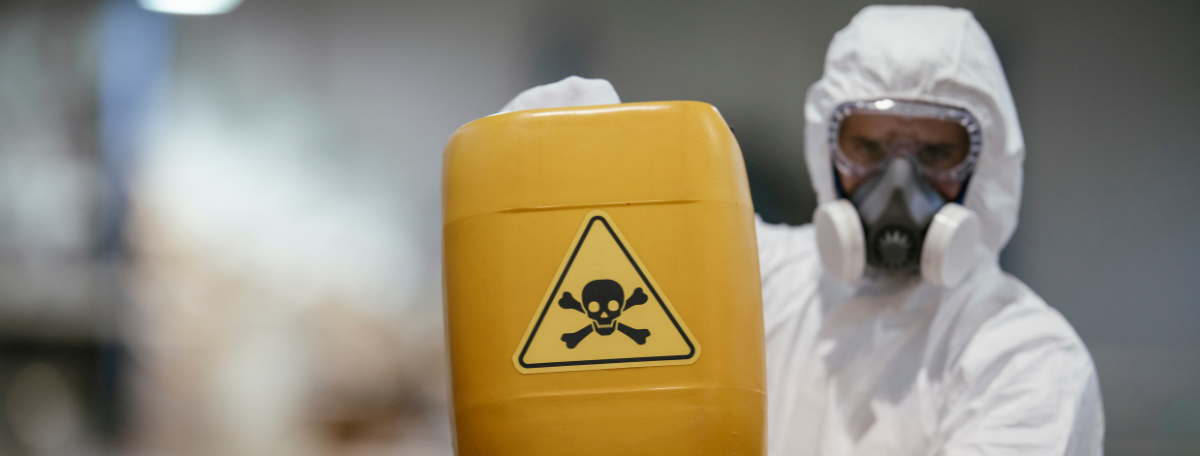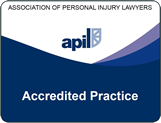When planning and looking for future job roles, the majority of people will consider factors such as whether the job will be fulfilling or meet their interests, what salary will be offered, and where the role is based. However, one thing we don’t often think about is how dangerous the job might be.
There are certain dangerous jobs in the UK that still require individuals to put their lives on the line daily. These brave workers deserve recognition for the risks they take to keep our society running smoothly.
According to recent statistics from the Health and Safety Executive (HSE), 135 fatal employee accidents were recorded across a number of industries between 2022 and 2023. Falls from height were the leading cause of death, followed by workers being struck by heavy objects, vehicle collisions and trappings in machinery.
As a personal injury law firm dedicated to helping those who have been injured whilst working in dangerous jobs, we are acutely aware of the challenges these workers face. In this blog, we will delve into the top ten most dangerous jobs in the UK and the most common accidents that occur.
Top Ten Most Dangerous Jobs
1. Construction
Topping the list of dangerous jobs, is the construction industry. Vital to the country’s infrastructure, is also fraught with risks. The HSE report indicates 39 fatal injuries in this sector in the same period. Building sites are full of hazards and workers need to stay alert at all times to ensure they don’t fall victim to accidents such as:
- Falls from Heights: Roofing, scaffolding, and elevated work areas increase the risk of falling accidents.
- Machinery Accidents: Heavy machinery like cranes and excavators can lead to crush injuries or fatalities.
- Exposure to Harmful Substances: Asbestos exposure can have long-term health consequences for construction workers.
2. Agriculture and Farming
The agriculture and farming sector remains one of the most hazardous in the UK. Not only does farming require the use of heavy-duty tools and vehicles to chop, grind and shred crops, but the animals can also be unpredictable.
- Machinery Accidents: Tractor rollovers, combine harvester incidents, and equipment entanglement can result in severe injuries or fatalities.
- Falls from Heights: Barns, silos, and elevated platforms pose risks of falls, potentially leading to fractures or worse.
- Livestock Incidents: Handling unpredictable livestock can result in injuries like bites, kicks, or being crushed.
3. Manufacturing
Manufacturing, responsible for producing a myriad of goods we use daily, isn’t without its risks. These jobs tend to be situated in factories or warehouses and depending on your job role, you will be exposed to varying health and safety dangers.
- Machinery Accidents: Workers may suffer injuries due to machinery entanglement, crushing, or impact.
- Chemical Exposure: Handling hazardous substances without proper precautions can lead to chemical burns or respiratory issues.
- Workplace Transport Incidents: Forklift accidents or collisions with industrial vehicles can result in injuries.
4. Transportation
Transportation, by use of Heavy Goods Vehicles (HGV’s) plays a pivotal role in supply chains, but it’s not without peril. HGV’s are the giants of our roads and can cause a considerable amount of damage to other vehicles, road users and the surrounding area when involved in an accident.
- Vehicle-Related Incidents: Road accidents, loading/unloading mishaps, and collisions pose significant risks.
- Heavy Cargo Handling: Injuries from lifting, moving, or securing heavy cargo can be debilitating.
5. Waste and Recycling
Collecting and managing waste are essential services, but they come with inherent dangers. Due to the nature of the job, waste management employees are exposed to significant health risks when coming into contact with unknown substances. In some areas, repeated heavy lifting forms part of the role and so repetitive strain and muscular injuries are commonplace.
- Vehicle-Related Incidents: Accidents during waste collection or recycling, such as collisions, can cause injuries.
- Machinery Accidents: Workers operating compactors or sorting equipment are at risk of accidents.
- Exposure to Hazardous Materials: Handling chemicals or contaminated waste can lead to health problems.
6. Fishing
Fishing is not for the fainthearted. Fishermen tackle extreme weather, long working hours and intense physical labour on a daily basis and is therefore considered one of the most challenging occupations. Managing a vessel, fishing equipment and the ever changing conditions at sea is difficult. If it becomes overwhelming, accidents can occur:
- Vessel Incidents: Drowning and injuries from vessel capsizing or malfunction are common.
- Equipment Mishaps: Handling fishing gear, such as nets and winches, can lead to injuries.
- Slippery Catch Handling: Injuries occur when handling slippery and powerful fish.
7. Roofing and Scaffolding
The risk of falls from height makes roofing and scaffolding a precarious occupation. Employees work come rain or shine and at times face treacherous conditions on the job. When relying on apparatus to support you at work, safety measures and training are crucial in reducing these incidents.
- Falls from Height: Roofers and scaffolders are at risk of falling, often resulting in severe injuries.
- Slips, Trips, and Falls: Uneven surfaces and weather conditions contribute to accidents.
- Tool and Equipment Accidents: Mishandling tools and faulty equipment can lead to injuries.
8. Mining and Quarrying
The mining and quarrying industry is renowned for it’s dangerous working conditions. The environment in which employees operate can be unpredictable and extremely dark with low visibility, leaving workers more vulnerable to hazards they cannot see. Sadly some of the most devastating accidents have occurred within the mining industry, involving both miners and civilians.
- Rockfalls: The risk of rockfalls or cave-ins poses a constant threat to miners.
- Machinery Accidents: Accidents involving drills, conveyor belts, and heavy equipment can result in injuries.
- Transportation Incidents: Underground vehicle collisions are a concern.
9. Forestry
Forestry workers face a unique set of hazards, Power tools are frequently used in this line of work and if they can cut through trees they most certainly should be handled with care and attention. Some of the most common accidents include:
- Chainsaw Accidents: Improper chainsaw handling can result in severe injuries.
- Falling Trees/Branches: Workers are at risk of being struck by falling trees or branches.
- Heavy Machinery Operation: Operating log skidders and other machinery presents hazards.
10. Healthcare
Surprisingly, the healthcare sector also appears on this list of dangerous jobs. These incidents are typically related to patient aggression, slips, trips, and falls. However, healthcare workers are also exposed to more specific hazards such as contaminated needles and some of the most contagious diseases. It is also important to note that healthcare workers bear witness to traumatic events on a daily basis and many employees can suffer psychologically as a result.
- Patient Aggression: Healthcare workers often face aggression from patients, leading to injuries.
- Slips, Trips, and Falls: Busy healthcare settings increase the likelihood of these accidents.
- Exposure to Infectious Diseases: Healthcare workers may be exposed to contagious illnesses.
Have You Suffered an Accident at Work?
The statistics from the HSE report remind us that there are some particularly dangerous jobs in the UK and although there are risks of injury in any workplace, the safety of those working in dangerous jobs should always be a top priority.
Recognising the multitude of ways individuals can become injured in these dangerous jobs is vital for promoting safety. Employers must implement comprehensive safety measures, provide training, and ensure workers have access to appropriate protective equipment.
Stonehewer Moss Solicitors remain dedicated to supporting those who have been injured in dangerous jobs, striving to reduce workplace incidents and create safer environments for all workers.
If you or someone you know has been injured at work, our team of highly skilled personal injury lawyers are here to provide support and guidance.
To learn more about No Win No Fee claims, watch this short video.
Talk to our claims solicitor
Call us on freephone 0800 434 6544 or 01606 87 22 00
Email us at info@stonehewermoss.co.uk


